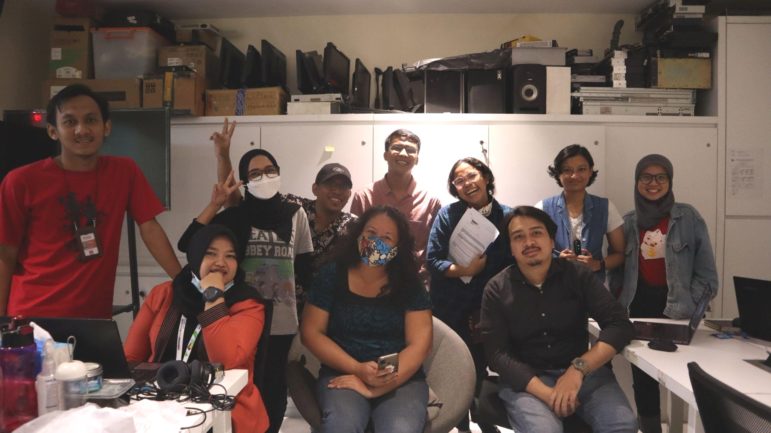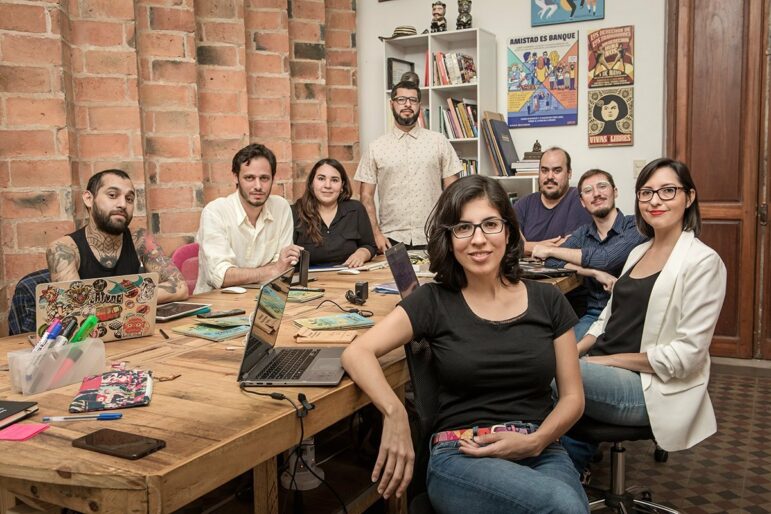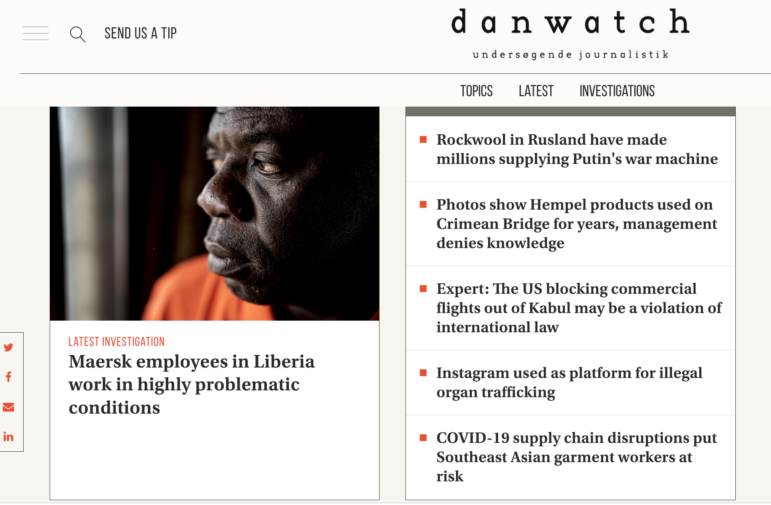

Illustration: Pixabay
Want To Help Investigative Startups in the Global South? Fund Them.

Illustration: Pixabay
Three years after writing the report “Publishing for Peanuts,” in which Columbia University’s School of International and Public Affairs (SIPA) surveyed 35 media startups mostly from the Global South, we decided to go back and see how the outlets had fared.
Our area of interest in 2015 was small-to-medium size independent media outlets with a track record of consistently producing credible content independently of state and mainstream media in the countries in which they were operating. “Startup” describes their work practices but, in fact, some of those we interviewed had been in operation for many years but may have undergone a relaunch or adapted to new circumstances following a political event.
Those “global muckraker” outlets remained our focus in 2018. As questions about media viability remain unanswered, in “Fighting for Survival: Media Startups in the Global South,” we wanted to understand the experiences of journalists in the Global South. Returning to the 35 outlets, we found three had failed, and six had been seriously reconfigured or renamed. Not everyone replied to our queries but in the end we spoke to 21 outlets from 2015 and five outlets we had not interviewed before. In hour-long interviews we conducted between July and December 2018, we asked the editors to describe their business models and to reflect on their mission, their successes and failures and how they survive.
Our Key Findings
• Financial survival is the biggest worry for the media outlets we profiled, followed by political risk and physical safety.
• The outlets remain dependent on donors. Advertising is hard to come by and raising funding from audiences has proven difficult. Donors need to accept this reality and be willing to commit to long-term support for outlets creating a public good.
• The grim political climate, rise of right-wing demagogues and attacks on the media have made the outlets feel appreciated in many countries. They recounted tales of support and encouragement from their audiences. But this sentiment does not translate into sustainable forms of funding.
• The outlets have professionalized in the sense that many now have accounting software, bookkeepers and full-time staff working on grant writing. But many still rely on unpaid contributors and some use office space that was provided for free or rented at a discount.
• There is a strong correlation between employing a full-time marketing staffer and generating revenue.
• Membership models are in fashion, but we believe that these models, while helpful, are even less likely to scale than crowdfunding. Selling memberships puts an additional demand on the readers, asking them for not just their money but also their time.
• Our findings suggest continued dependence by media outlets on philanthropy. We urge donors to collaborate more and think about the larger media ecosystem as they make funding decisions. Support should be given carefully so that there aren’t too many small outlets competing for the same pots of funding. Donors and media development organizations need to maintain a balance between enthusiasm, optimism and support for innovation, and creating false hopes and unrealistic expectations.
• There is a need for an industry-wide body that would assist small civic-minded outlets in building capacity for doing international fundraising and other kinds of efforts to generate revenue. At the moment, a group of donors offer some services but not others, but there is no one-stop shop. Certainly, media startups often do not make use of what does exist, partly because they aren’t aware of what is available or lack the time to make plans. Even so, it may be time to consider a general industry body that would assist with peer-to-peer learning and fundraising, channel funds from donors and do capacity building. The Global Investigative Journalism Network is making attempts in this regard and has been answering requests for assistance from all over the world and helping with business strategies.
• Recent discussion about creating a global media fund is also an exciting and necessary initiative. It is possible that such a fund, as well as supporting a public good, could help the outlets profiled in this report.
Key Financial Trends
Below are the results from our survey, based on responses from the 26 organizations we profiled for this report.
-
- Most of the startups were founded by between four and 10 people, with outliers saying they had two founders or were in the 15 to 25 range.
- 15 out of 20 said they lost one or more founders since their founding.
- Most outlets disseminate information via the web and mobile.
- 11 organizations out of 20 pay a salary to their founders. Of these, nine said the salary is enough to live on.
- 11 of 17 said their organization’s annual income covers their expenses. Six said it does not.
- Out of 19 organizations, only 16 earned back their original investment.
- 17 out of 19 said the greatest risk they face is financial. Four cited political risk and two mentioned personal safety.
- 19 organizations said they are looking for new funding, 14 from foundations.
- 15 out of 19 said they currently get money from foundations.
- 2 of the 19 said the money is from the same funders as in 2015, five said different organizations, and eight said a mix of both.
- 13 out of 21 said they get income from advertising. Eight said they do not.
- 10 out of 22 said they have staff dedicated to fundraising and writing grant proposals.
- 13 out of 21 use book keeping software. 17 out of 22 have a bookkeeper. 20 out of 22 have an accountant.
- Some outlets use donated office space (Daily Maverick in South Africa, InvestigateWest in Seattle, JOTA in Brazil). Many rely on unpaid contributors.
- 13 out of 16 have expansion plans. Some want to make apps. Daily Maverick (South Africa) wants to make films and Horizontal (Mexico) hopes to begin podcasting.
- 14 out of 20 said their audiences have changed since 2015.
- 16 out of 18 said they have an exit strategy for their outlet. Two said they do not. 15 out of 16 said they would not sell out. One said they would be willing.
Advice for New Startups
We asked some of the founders and editors we interviewed for their tips for beginners. Mostly they said that it’s important to have a business plan and a sense of who your audience will be.
Premesh Chandran of Malaysiakini (Malaysia):
“Great journalists may not be great in business, just as doctors may fail at running a hospital or a great football player may not be a good manager. Good journalists can go on to win awards, but if the goal is sustainability, then thinking about the business starts on day one.”
Branko Brkic of Daily Maverick (South Africa):
“Don’t do it unless you are really well funded. A cash crisis takes the fun out. It’s debilitating. You need to start off with two years’ worth of funding, and in two years you can show your potential.”
Aunohita Mojumdar of Himal Southasian (based in Sri Lanka, covers South Asia):
“Make sure you have a two-year solvency plan. Too many startups fail because they are busy surviving in cycles of funding of six months or less. Also, while multitasking is essential, it has its limits. In the interests of cost saving, your staffing can be so skeletal as to never put on flesh, as it were. Make sure you have enough people with the right skills to stay the course and grow, else you end up cannibalizing yourself.”
A chief editor of the Maldives Independent (Maldives), who spoke on the condition of anonymity due to fear of reprisals:
“Always ask yourself why you are publishing news and how you can be different or better. Look at what other outlets are doing and ask if it’s something you would do; if not, then don’t lose any sleep over it.”
Fiona Macleod of Oxpeckers (based in South Africa, covers southern Africa):
“There’s a lot of noise out there, a lot of potential competitors. You need to be very clear about what you want to do and how you want to feed it. It’s not a good idea to start up something that doesn’t continue. This speaks to how seriously people will take you. If you focus on particular areas, preferably where there are gaps, you’re more likely to succeed.”
Felipe Seligman of JOTA (Brazil):
“The team is as important as the product. You need to choose partners wisely. … Don’t fall in love with your ideas. An idea isn’t worth anything. It’s the ability to execute that’s more important. That is why you need people around you with different abilities. Diversity is important. You will find success in some things you never thought of. The value you will create, you don’t even know yet. You will find it on the path. Falling in love with an idea will prevent you from going there.”
This post is an excerpt from the report “Fighting for Survival: Media Startups in the Global South.” It is reproduced here with permission.
 Anya Schiffrin is director of the Technology, Media and Communications specialization at Columbia University’s School of International and Public Affairs in New York City. Her most recent book is “African Muckraking: 50 Years of African Investigative Journalism” (Jacana, 2017).
Anya Schiffrin is director of the Technology, Media and Communications specialization at Columbia University’s School of International and Public Affairs in New York City. Her most recent book is “African Muckraking: 50 Years of African Investigative Journalism” (Jacana, 2017).









